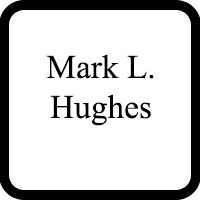Moorcroft Estate Lawyer, Wyoming
Sponsored Law Firm
-
 x
x

Click For More Info:
-
Hughes Law Office
113 North 3rd St Sundance, WY 82729» view mapDivorce & Family, Criminal, Estate Working Relentlessly For You
Let Hughes Law Office handle your legal matters today!
800-960-0161
Mark L. Hughes
✓ VERIFIEDDivorce & Family Law, Estate, Criminal, Accident & Injury, Lawsuit & Dispute
Mark Hughes is a practicing lawyer in the state of Wyoming. Attorney Hughes received his J.D. from the University of Wyoming College of Law in 1978.
Patrick E. Carpenter
Commercial Real Estate, Estate Planning, Estate, Personal Injury
Status: In Good Standing Licensed: 26 Years
Thomas E. Lubnau
Construction, Litigation, Health Care Other, Trusts, Wrongful Death
Status: In Good Standing
Joseph E. Hallock
Motor Vehicle, Social Security, Wills & Probate, Wrongful Termination
Status: In Good Standing Licensed: 42 Years
James L. Edwards
Contract, Collection, Trusts, Landlord-Tenant
Status: In Good Standing Licensed: 48 Years
 Mark Hughes Sundance, WY
Mark Hughes Sundance, WY Practice AreasExpertise
Practice AreasExpertise

